Trusted by 1,000+ adventurers • 100% 5-star reviews
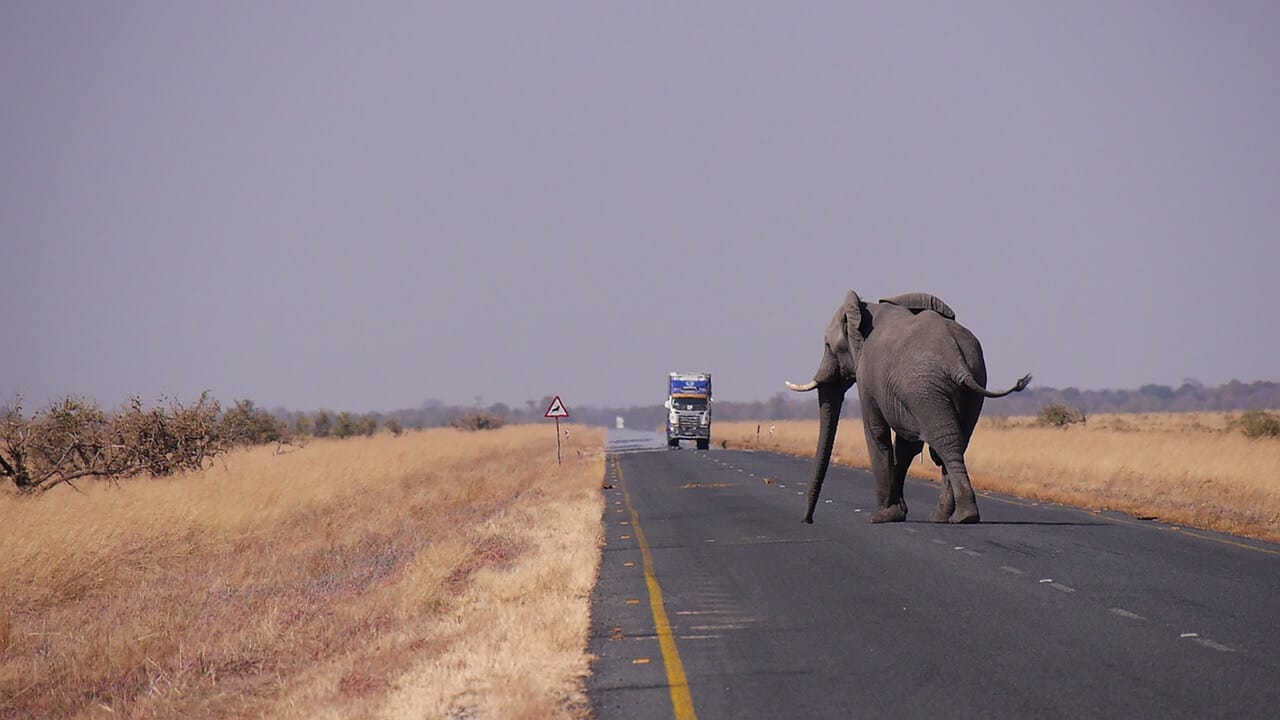
Botswana travel guide
Things to do in Botswana
Botswana, a jewel in southern Africa, and now a jewel in our adventures, offers travellers an extraordinary blend of stunning landscapes, abundant wildlife, and rich cultural experiences. Whether you’re planning an epic safari or a serene getaway, this comprehensive guide will provide you with everything you need to know about travelling to Botswana.
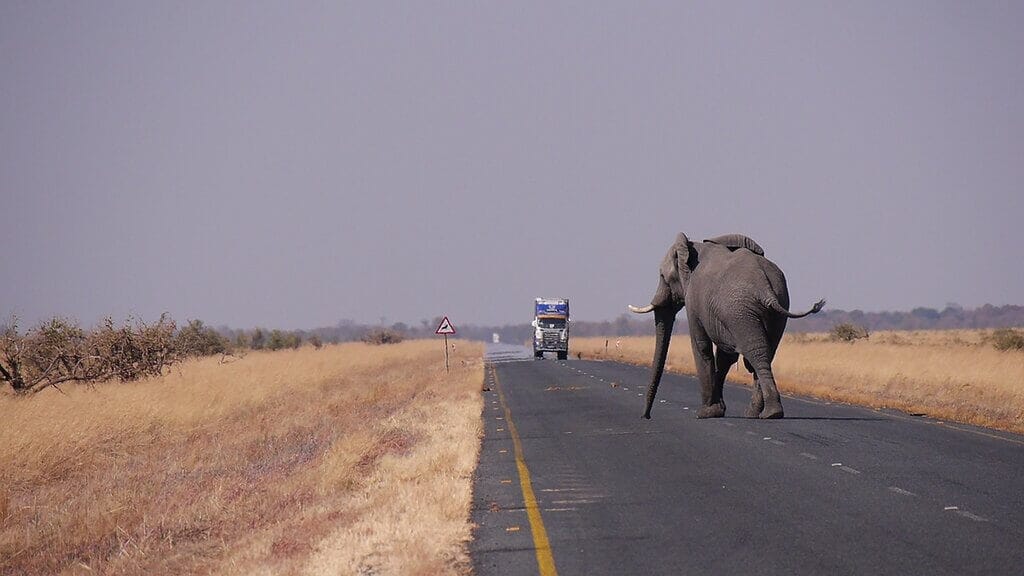
Overview of Botswana
Botswana is a landlocked country in southern Africa, bordered by South Africa, Namibia, Zimbabwe, and Zambia. Known for its political stability and strong economic growth, largely driven by diamond mining, Botswana is one of Africa’s greatest modern success stories.
Getting to Botswana
Entry Requirements
To enter Botswana, visitors must have a valid passport. Depending on your nationality, a visa may be required. It’s advisable to check the specific entry requirements before you travel.
International Driving Permit
If you plan to drive in Botswana, an international driving permit is recommended. This document is recognized by local authorities and will make your travel smoother.
How to Enter Botswana
Most travelers enter Botswana via Sir Seretse Khama International Airport in Gaborone or Maun International Airport, which is closer to the Okavango Delta. There are also border crossings for those travelling overland from neighboring countries.
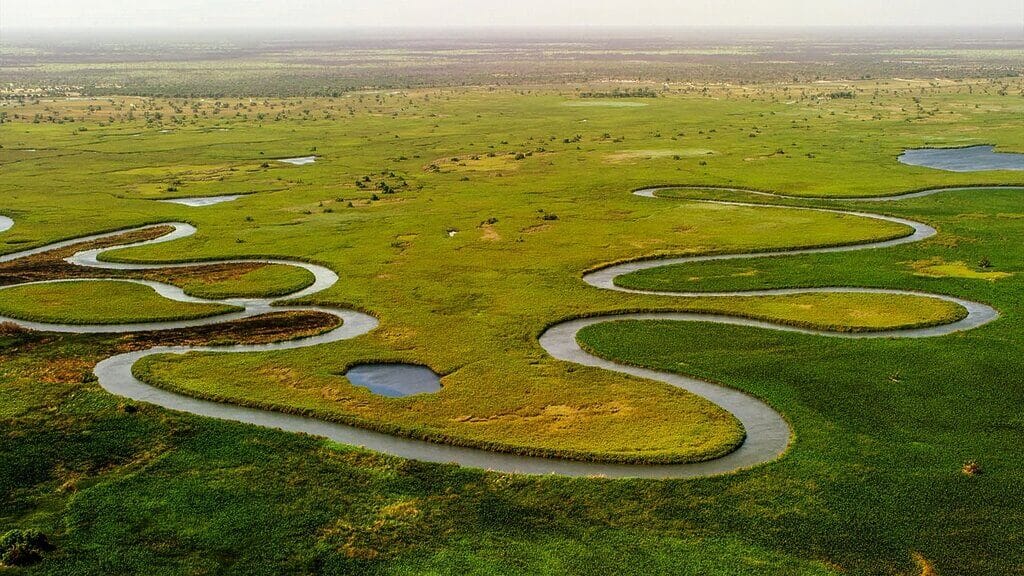
Health and Safety
Medical Facilities
Botswana has private medical facilities in major towns and cities, but services in remote areas can be limited. It’s essential to have comprehensive travel insurance that covers medical evacuation in case of emergencies.
Medical Evacuation
For serious medical emergencies, medical evacuation may be necessary. Ensure your travel insurance covers this, as costs can be significant.
Preventing Malaria
Malaria is a risk in some areas of Botswana, particularly during the rainy season. It is advisable to take malaria prophylaxis and use insect repellent to prevent mosquito bites.
Yellow Fever Vaccination
A yellow fever vaccination is required if you are coming from a country with a low risk of yellow fever. Ensure your vaccination is up to date before traveling.

Safety and Security
Is Botswana Safe for Tourists?
Botswana is generally considered safe for tourists. However, it’s important to exercise caution, particularly in urban areas where petty crime can occur.
Violent Crime
Violent crime is relatively rare but does occur. Avoid walking alone at night and be cautious in unfamiliar areas.
Wildlife Safety
Botswana is home to many wild animals, including pontenially dangerous animals like lions and elephants. Always follow park regulations and listen to your guides to avoid wildlife attacks.
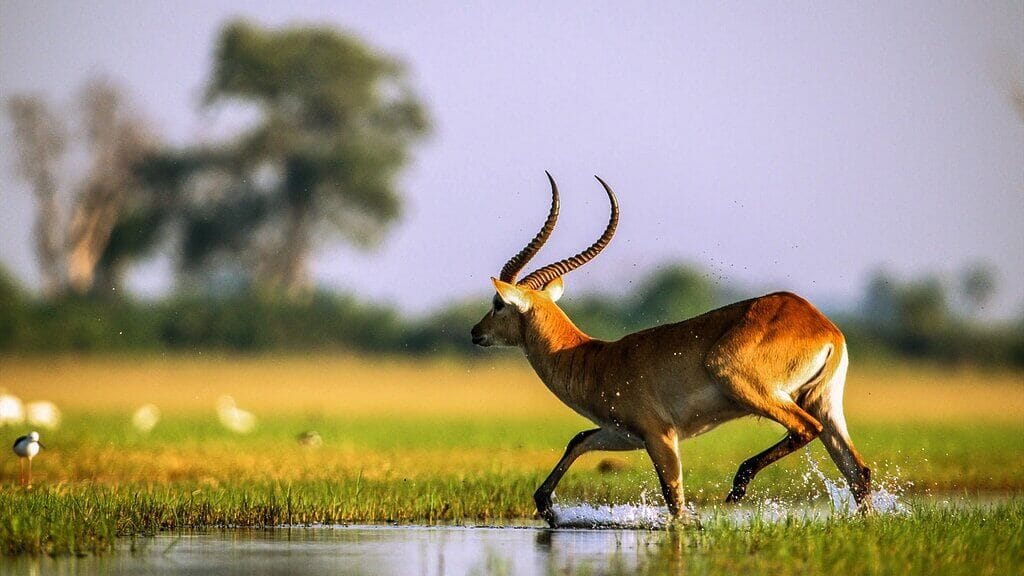
Avoid Walking at Night
In both urban and rural areas, it’s advisable to avoid walking alone at night to reduce the risk of crime and wildlife encounters.
Government Installations
Military and government installations are off-limits for photography. Always respect local regulations and avoid these areas to prevent attracting negative attention.
Cultural Etiquette
Same-Sex Relationships
Same-sex relationships are legal in Botswana. Public displays of affection, regardless of sexual orientation, are generally frowned upon in Botswana. It’s best to be discreet to avoid attracting negative attention.
Major Urban Areas
Gaborone: The Capital City
Gaborone, the capital of Botswana, is a modern city with shopping malls, restaurants, and cultural attractions. It’s a great starting point for your Botswana adventure.
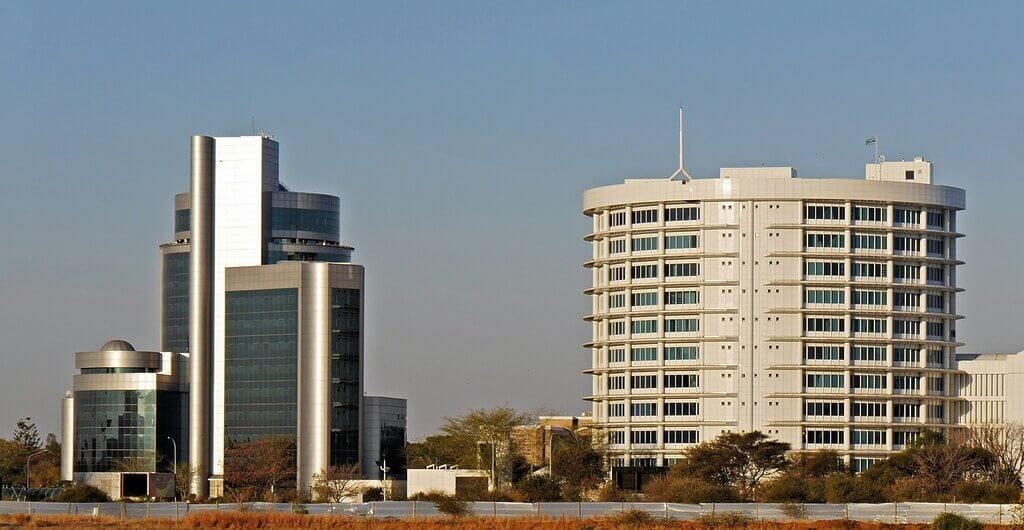
Francistown
Francistown is one of Botswana’s oldest towns and serves as a gateway to the northern part of the country. It offers a mix of historic and modern attractions.
Maun: Gateway to the Okavango Delta
Maun is the primary gateway to the Okavango Delta and is a hub for tour operators. The town offers a range of accommodations and services for travellers.
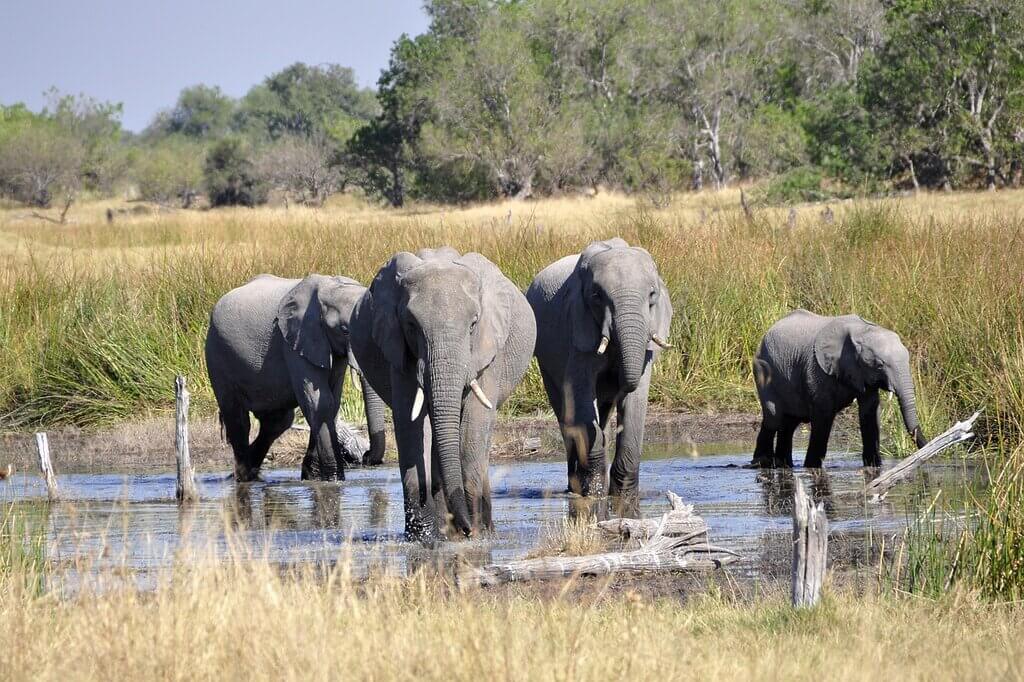
Top Attractions in Botswana
Okavango Delta
The Okavango Delta is a UNESCO World Heritage Site and one of Botswana’s premier attractions. This vast inland delta is a haven for wildlife and offers a variety of activities, including mokoro (dugout canoe) trips, game drives, and walking safaris.
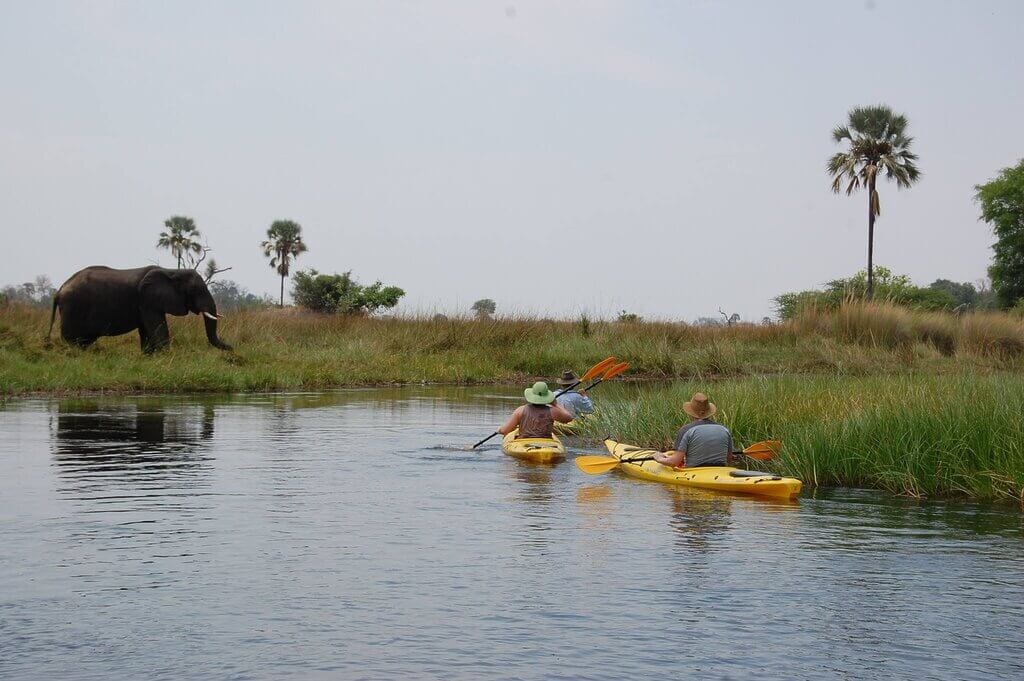
Chobe National Park
Chobe National Park is famous for its large elephant population and diverse ecosystems. Visitors can enjoy boat cruises on the Chobe River, game drives, and bird watching.
Nxai Pan National Park
Nxai Pan National Park is known for its striking baobab trees and vast salt pans. It’s a great place to see migratory wildlife, including zebras and wildebeests.
Makgadikgadi Pans
The Makgadikgadi Pans are one of the largest salt flats in the world. During the rainy season, the pans transform into a haven for migratory birds and wildlife.
Moremi Game Reserve
Moremi Game Reserve, located in the Okavango Delta, offers some of the best wildlife viewing in Botswana. The reserve is home to a wide variety of animals, including the Big Five.
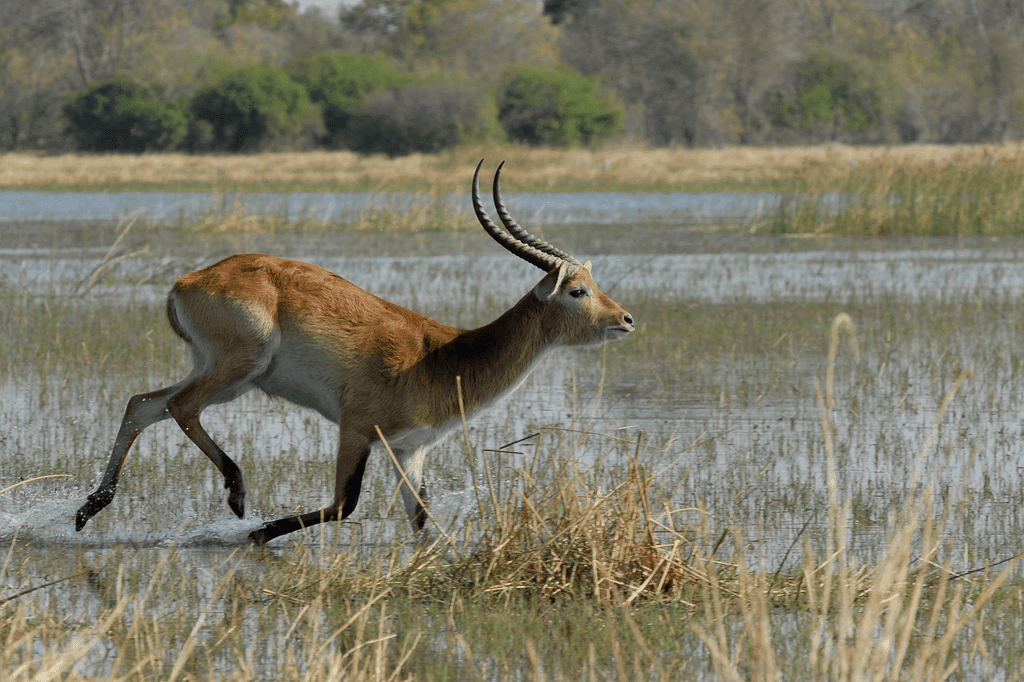
Exploring Botswana’s National Parks
Follow Park Regulations
When visiting national parks in Botswana, it is important to follow park regulations to ensure your safety and the preservation of the environment.
Game Drives
Game drives are widely accepted as one of the best ways to see Botswana’s wildlife. They are typically conducted in the early morning or late afternoon when animals are most active.
Wildlife Attacks
Always listen to your guide’s instructions and never approach wild animals. Wildlife attacks are rare but can be fatal if proper precautions are not taken.
Join Our Botswana Kayak Bushcraft Safari
An Unforgettable Adventure
Imagine gliding in a kayak past giraffes and elephants as the sun rises, surrounded by hundreds of different bird species. This unique adventure will see you camping out each night in the remote bush at a new location under a blanket of stars, learning bushcraft skills from our instructors and the Kalahari Bushmen. This will be your life for seven days, pushing ever deeper into the Okavango Delta, spotting wildlife along the way before a two-day challenge surviving on an island deep in this African water world.
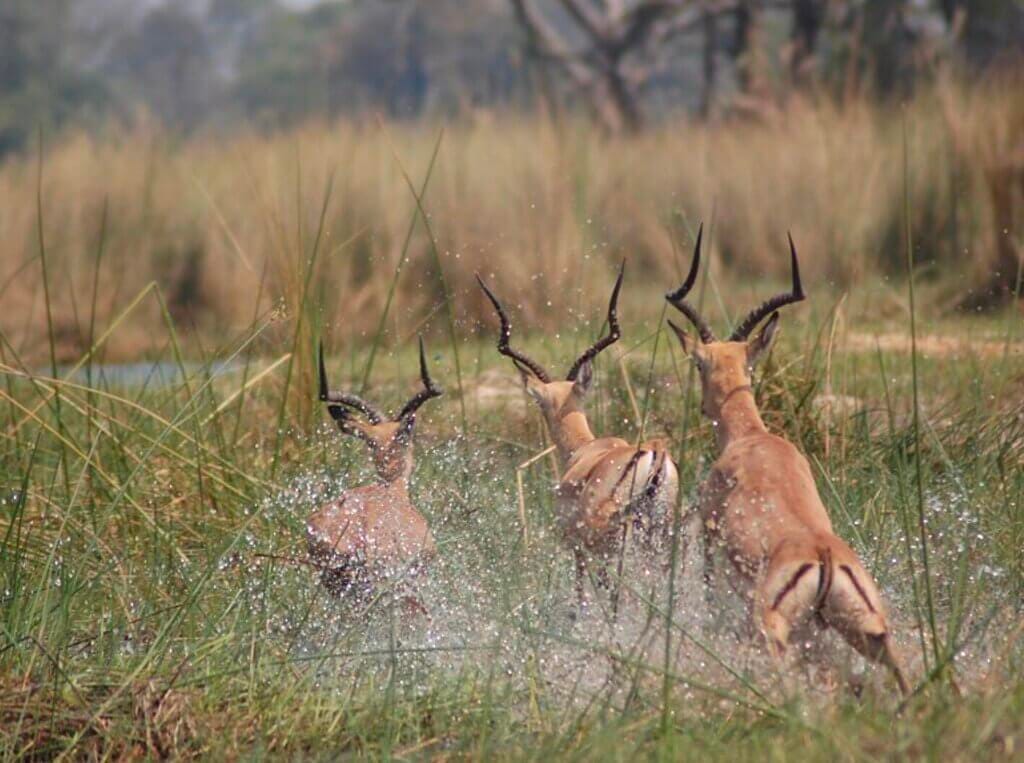
The Okavango Delta: A World Heritage Spectacle
The World Heritage Okavango Delta is a bucket list spectacle that anyone with even a cursory interest in a decent Attenborough documentary should have near the top of their list. There is no more immersive or intimate way to enjoy the savannas of Africa than by kayaking and camping out. At this time of year, wildlife from thousands of miles away are drawn into the precious water, and you have a front-row seat. Each morning you will wake up at sunrise and check whether your front garden is frequented by elephants or, perhaps, giraffes today.
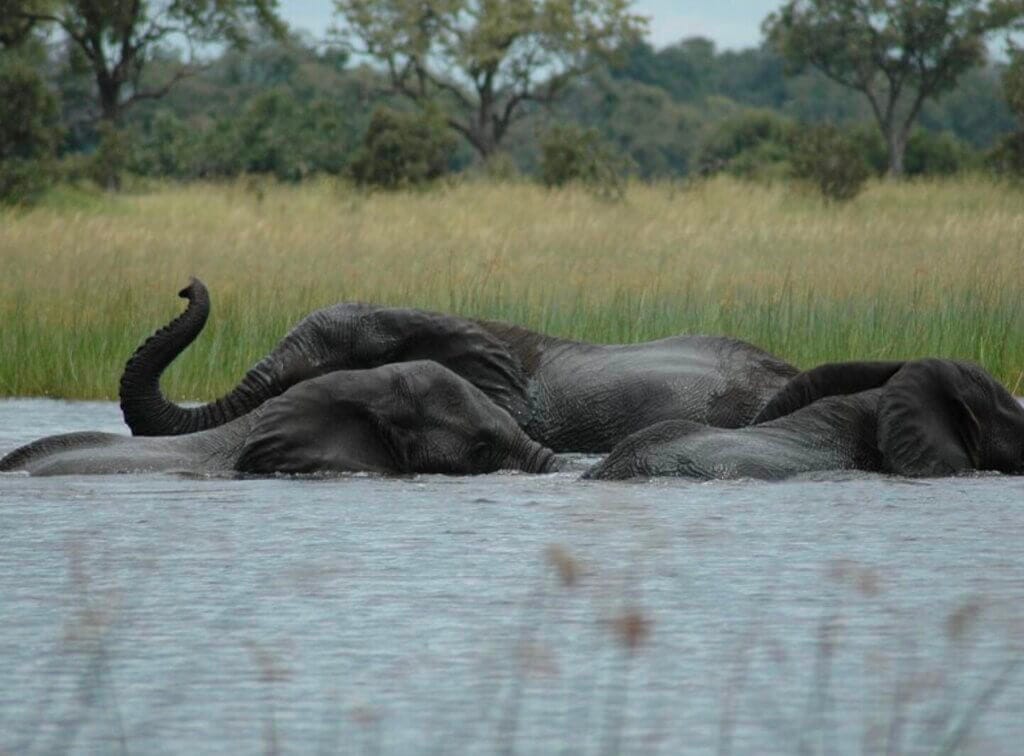
The Expedition
This trip is split between the kayaking and camping expedition and then your survival phase. During the expedition phase, you will paddle through the waterways of the Okavango Delta, navigating past hippos and crocodiles, and witnessing the spectacular wildlife that thrives in this unique ecosystem. Each night, you’ll set up camp in a new location, enjoying the tranquility of the African bush.
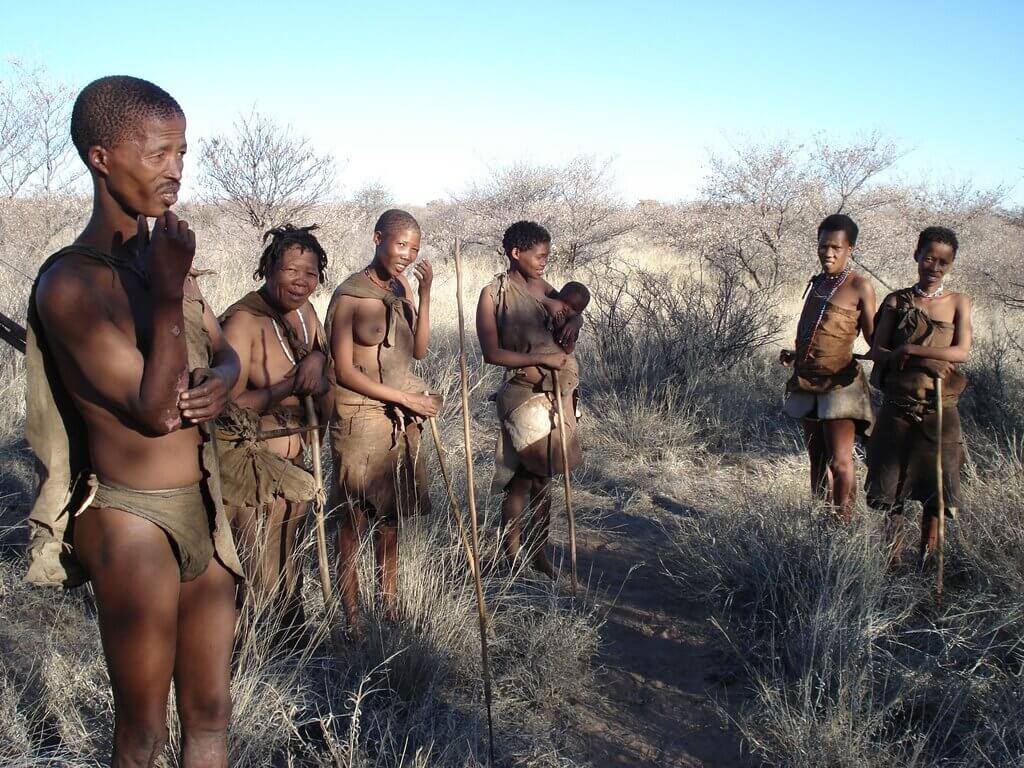
The Survival Phase
After the expedition, you’ll move into the survival phase, where you apply your newly learned bushcraft skills under the guidance of the real masters—the local Kalahari Bushmen—and one of our expert instructors, typically a past contestant from the show Alone. These instructors bring incredible stories and survival expertise, adding a rich layer of authenticity to your adventure.
Why This Trip is Unmissable
You can spend tens of thousands on a safari and still never experience anywhere near this level of intimacy with the savannahs of Africa. This is not just a trip; it’s an adventure that immerses you in the wild, challenges your limits, and leaves you with stories and skills that last a lifetime. Don’t miss out on this unparalleled experience.
For more information and to book your adventure, visit our Botswana Kayak Bushcraft Safari page. Join us for an unforgettable journey into the heart of the Okavango Delta.
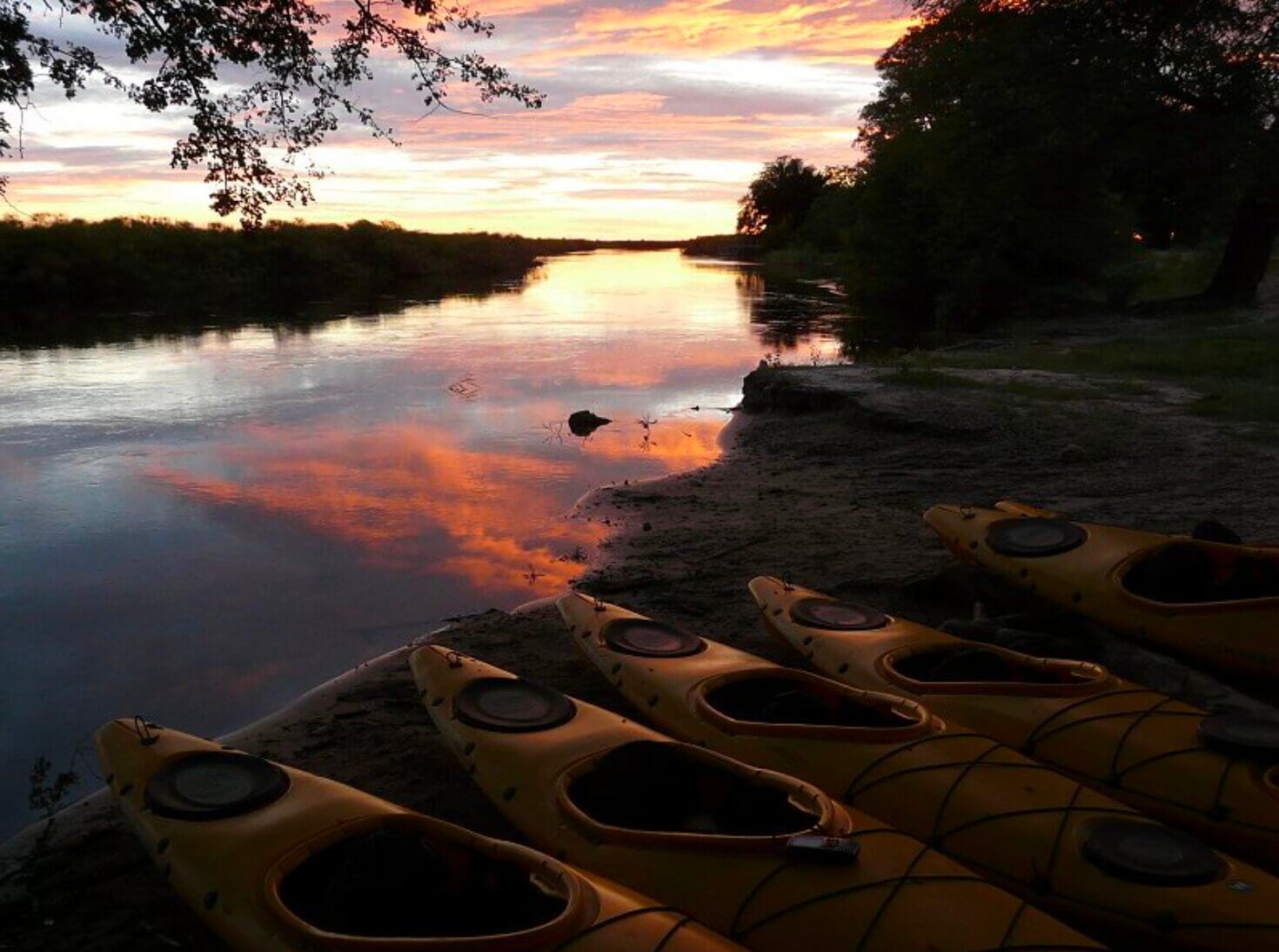
Botswana’s Remote Areas
Exploring Remote Areas
Botswana’s remote areas offer a sense of adventure and solitude. These areas include the Central Kalahari Game Reserve and the Makgadikgadi Pans.
Safety in Remote Areas
When traveling to remote areas, it is important to be prepared. Carry enough water, food, and fuel, and ensure that you have a reliable means of communication, such as a satellite phone.
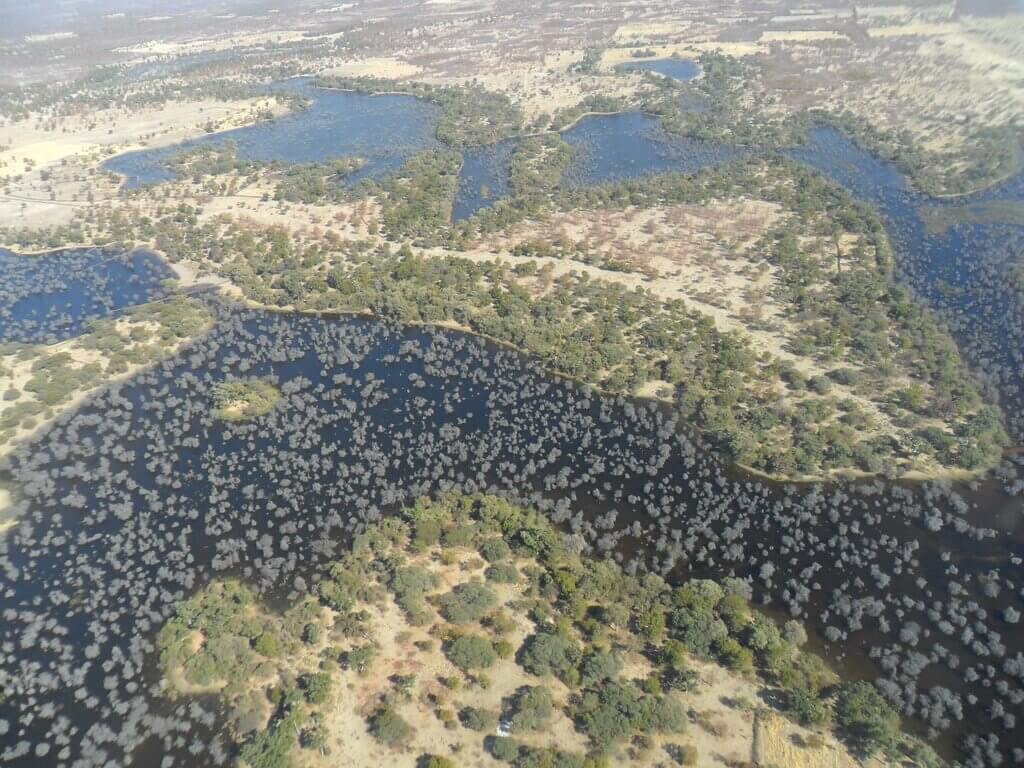
Travel Tips for Botswana
Best Time to Visit Botswana
The best time to visit Botswana is during the dry season, from May to October. During this period, wildlife congregates around water sources, making it easier to spot animals.
How to Travel Around Botswana
The best way to travel around Botswana is by 4×4 vehicle, particularly if you plan to visit remote areas. For long distances, domestic flights are available.
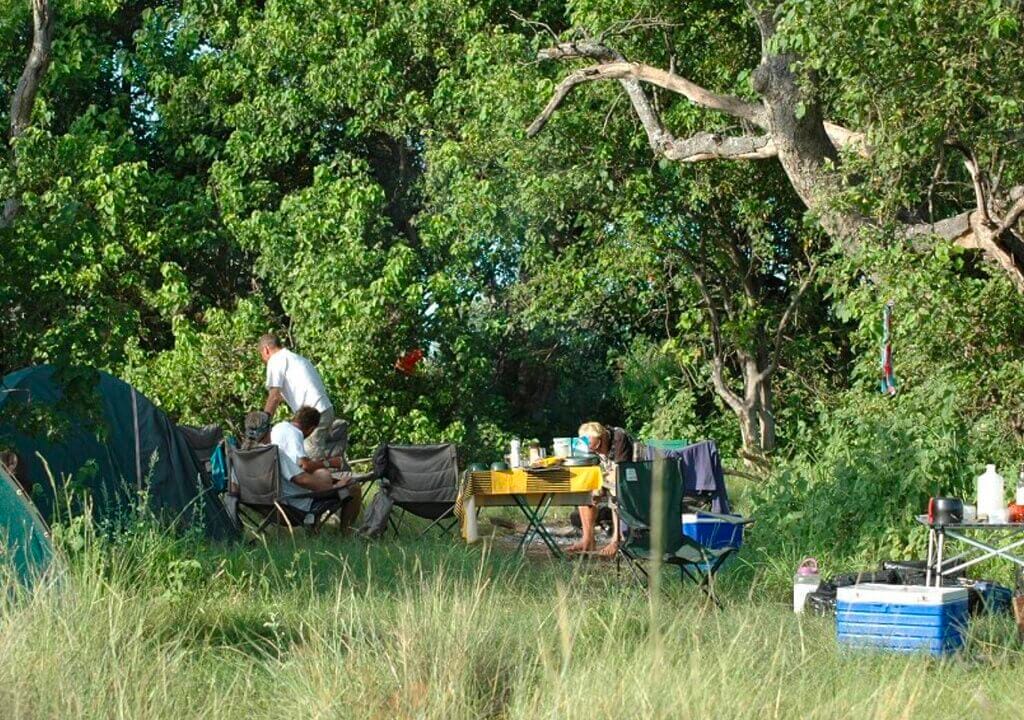
Practical Information
Entry Requirements
Visitors to Botswana need a valid passport and may require a visa, depending on their nationality. It is important to check the entry requirements before you travel.
Child’s Unabridged Birth Certificate
If traveling with children, you will need to carry certified copy of a child’s unabridged birth certificate.
Avoid Attracting Negative Attention
To avoid attracting negative attention, respect local customs and traditions. Dress modestly and be polite in your interactions with locals.
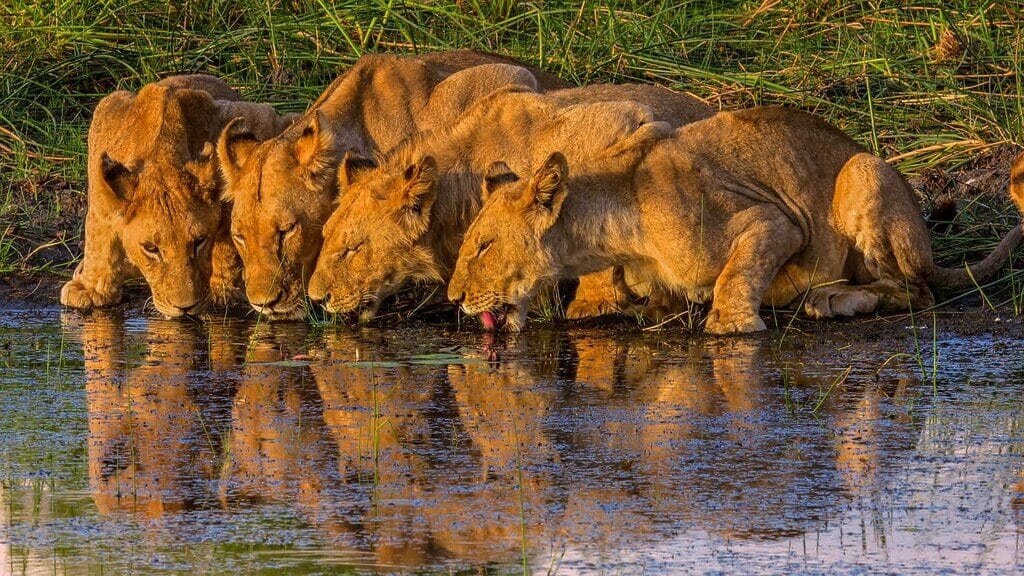
Medical and Health Precautions
Private Medical Facilities
Botswana has private medical facilities in major towns and cities. However, in remote areas, the medical care facilities can be limited. It is advisable to carry a basic medical kit.
Medical Evacuation
For serious medical emergencies, medical evacuation may be necessary. Ensure that your travel insurance covers this.
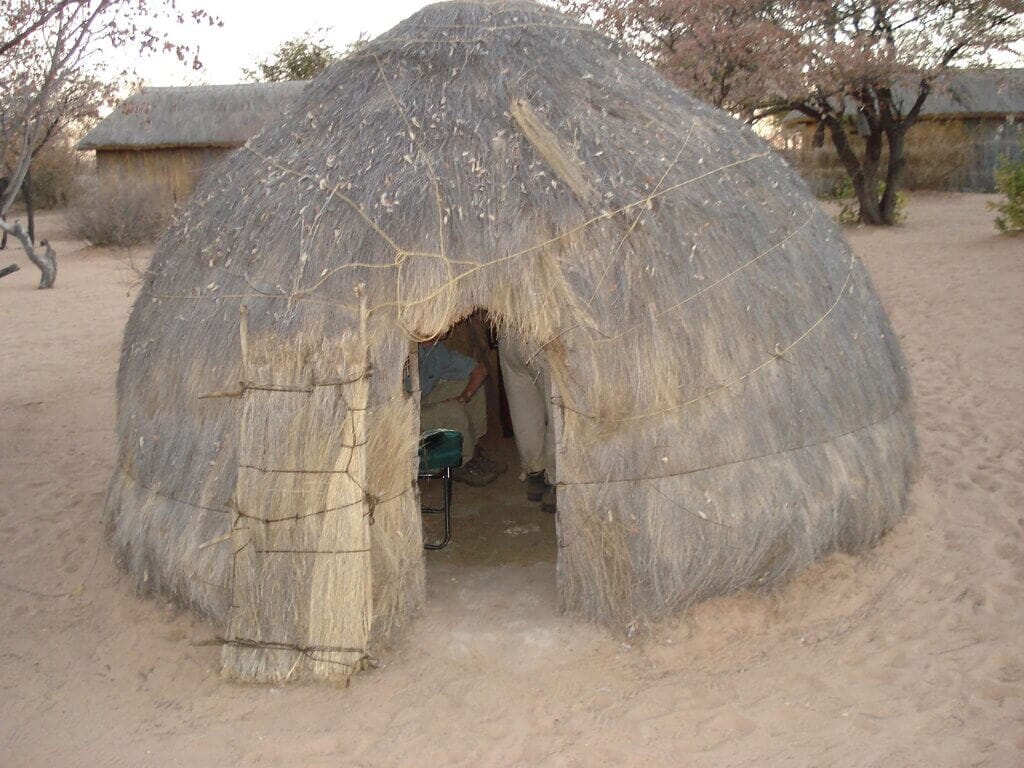
Communication in Botswana
Botswana Telephone
The Botswana telephone system is generally reliable in major towns and urban areas. However, coverage can be limited in remote regions.
Satellite Phone
For travel in remote areas, a satellite phone is recommended. It ensures you have a reliable means of communication in case of emergencies.
Legal and Regulatory Information
Illegal Drugs
Illegal drugs are strictly prohibited in Botswana. Possession or trafficking of drugs can result in severe penalties, including imprisonment.
Government Permit
Certain areas, especially those near military and government installations, may require a government permit for access. Always check with local authorities before visiting restricted areas.
Wildlife and Conservation
Animal Products
The trade in animal products, such as in rhinoceros horn products and elephant hair, is illegal. Avoid purchasing these items to support conservation efforts.
Wildlife Attacks
Always be cautious around wild animals and follow the advice of your guides. Wildlife attacks, although rare, can be dangerous.
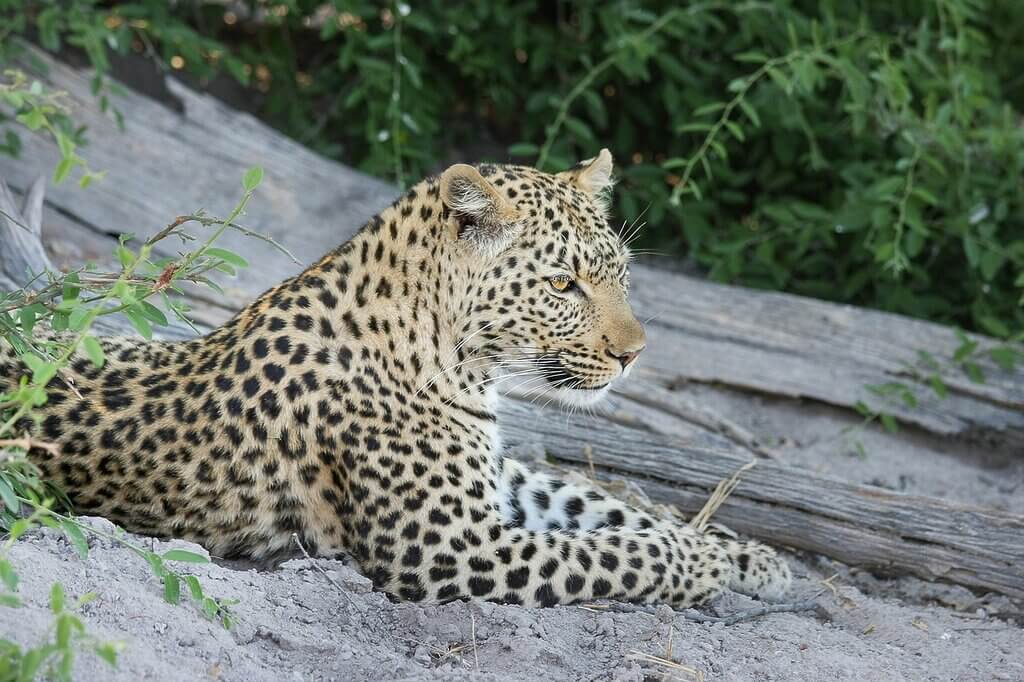
Transportation in Botswana
Public Transportation
Public transportation in Botswana is limited, particularly in remote areas. It is advisable to rent a vehicle or use private tour operators for convenience.
Traffic Lights
Traffic lights are generally functional in major towns and cities. However, always exercise caution and follow local traffic regulations.
Local Cuisine and Dining
Traditional Dishes
Botswana’s cuisine includes dishes such as seswaa (pounded meat), pap (maize porridge), and morogo (wild spinach). Be sure to try these local specialties during your visit.
Restaurants
Major urban areas like Gaborone and Maun offer a variety of restaurants, ranging from local eateries to international cuisine.
Cultural Highlights
Traditional Dance and Music
Batswana enjoy traditional dance and music, which are integral parts of their cultural heritage. Attending a local performance can be a memorable experience.
Festivals and Events
Botswana hosts several cultural festivals and events throughout the year. These celebrations provide insight into the country’s rich traditions and heritage.
Shopping and Souvenirs
Licensed Stores
When purchasing souvenirs, ensure you buy from licensed stores. This guarantees the authenticity of the products and supports local artisans.
Avoid Animal Trophies
Avoid purchasing animal trophies and other wildlife products. These items are often illegal and contribute to the decline of endangered species.
Experience the Best of Botswana
Botswana is a destination that offers an unparalleled blend of adventure, wildlife, and culture. From the vast Okavango Delta to the vibrant city of Gaborone, there’s something for every traveller. Whether you’re planning a luxury safari or a budget-friendly adventure, this travel guide provides all the information you need to make the most of your trip.
Join Our Botswana Kayak Bushcraft Safari
Are you ready to explore Botswana in a way few others have? Join our Botswana Kayak Bushcraft Safari for an unforgettable adventure. Learn survival skills, experience the thrill of the wild, and create memories that will last a lifetime. Book your trip today and discover the magic of Botswana!

FAQs
Is it safe to travel to Botswana now?
Yes, Botswana is a generally safe and considered a safe destination for travelers. The country is known for its political stability and low crime rates compared to other African nations. However, it’s always wise to exercise standard travel precautions such as avoiding walking alone at night, securing valuables in a hotel safe, and being aware of your surroundings. When exploring remote areas or going on safari, always follow the guidance of experienced tour operators and park regulations to ensure your safety around wildlife.
Why is Botswana famous?
Botswana is famous for its breathtaking natural landscapes and abundant wildlife. The country is home to the Okavango Delta, a UNESCO World Heritage Site and one of the world’s largest inland deltas, which offers unparalleled safari experiences. Botswana is also renowned for Chobe National Park, known for its large elephant population, and the Central Kalahari Game Reserve, which showcases a unique desert ecosystem. Additionally, Botswana’s commitment to wildlife conservation and sustainable tourism has made it a leading destination for eco-tourism and luxury safaris.
What is the best month to go to Botswana?
The best time to visit Botswana is during the dry season, from May to October. During this period, wildlife congregates around water sources, making it easier to spot animals. The weather is also cooler and more comfortable for outdoor activities. June to August is particularly popular for safari trips due to the high concentration of wildlife in areas like the Okavango Delta and Chobe National Park. The rainy season, from November to April, offers lush landscapes and fewer tourists, but it can make some areas difficult to access due to flooding and muddy roads.
Join our Botswana Adventure or read our other travel guides.

